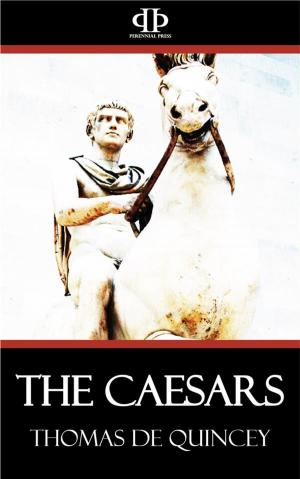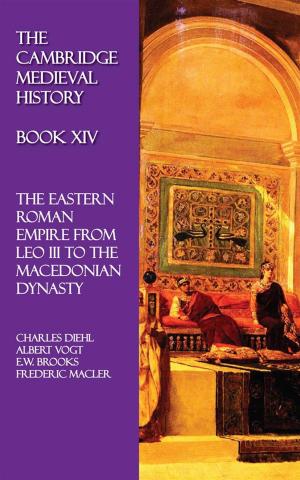Critias
Nonfiction, History, Ancient History, Greece, Religion & Spirituality, Philosophy, Political, Ethics & Moral Philosophy| Author: | Plato | ISBN: | 9781531259389 |
| Publisher: | Perennial Press | Publication: | March 23, 2016 |
| Imprint: | Language: | English |
| Author: | Plato |
| ISBN: | 9781531259389 |
| Publisher: | Perennial Press |
| Publication: | March 23, 2016 |
| Imprint: | |
| Language: | English |
The Critias is a fragment which breaks off in the middle of a sentence. It was designed to be the second part of a trilogy, which, like the other great Platonic trilogy of the Sophist, Statesman, Philosopher, was never completed. Timaeus had brought down the origin of the world to the creation of man, and the dawn of history was now to succeed the philosophy of nature. The Critias is also connected with the Republic. Plato, as he has already told us (Tim.), intended to represent the ideal state engaged in a patriotic conflict. This mythical conflict is prophetic or symbolical of the struggle of Athens and Persia, perhaps in some degree also of the wars of the Greeks and Carthaginians, in the same way that the Persian is prefigured by the Trojan war to the mind of Herodotus, or as the narrative of the first part of the Aeneid is intended by Virgil to foreshadow the wars of Carthage and Rome. The small number of the primitive Athenian citizens (20,000), 'which is about their present number' (Crit.), is evidently designed to contrast with the myriads and barbaric array of the Atlantic hosts. The passing remark in the Timaeus that Athens was left alone in the struggle, in which she conquered and became the liberator of Greece, is also an allusion to the later history. Hence we may safely conclude that the entire narrative is due to the imagination of Plato, who has used the name of Solon and introduced the Egyptian priests to give verisimilitude to his story. To the Greek such a tale, like that of the earth-born men, would have seemed perfectly accordant with the character of his mythology, and not more marvellous than the wonders of the East narrated by Herodotus and others: he might have been deceived into believing it. But it appears strange that later ages should have been imposed upon by the fiction. As many attempts have been made to find the great island of Atlantis, as to discover the country of the lost tribes. Without regard to the description of Plato, and without a suspicion that the whole narrative is a fabrication, interpreters have looked for the spot in every part of the globe, America, Arabia Felix, Ceylon, Palestine, Sardinia, Sweden.
Timaeus concludes with a prayer that his words may be acceptable to the God whom he has revealed, and Critias, whose turn follows, begs that a larger measure of indulgence may be conceded to him, because he has to speak of men whom we know and not of gods whom we do not know. Socrates readily grants his request, and anticipating that Hermocrates will make a similar petition, extends by anticipation a like indulgence to him...
The Critias is a fragment which breaks off in the middle of a sentence. It was designed to be the second part of a trilogy, which, like the other great Platonic trilogy of the Sophist, Statesman, Philosopher, was never completed. Timaeus had brought down the origin of the world to the creation of man, and the dawn of history was now to succeed the philosophy of nature. The Critias is also connected with the Republic. Plato, as he has already told us (Tim.), intended to represent the ideal state engaged in a patriotic conflict. This mythical conflict is prophetic or symbolical of the struggle of Athens and Persia, perhaps in some degree also of the wars of the Greeks and Carthaginians, in the same way that the Persian is prefigured by the Trojan war to the mind of Herodotus, or as the narrative of the first part of the Aeneid is intended by Virgil to foreshadow the wars of Carthage and Rome. The small number of the primitive Athenian citizens (20,000), 'which is about their present number' (Crit.), is evidently designed to contrast with the myriads and barbaric array of the Atlantic hosts. The passing remark in the Timaeus that Athens was left alone in the struggle, in which she conquered and became the liberator of Greece, is also an allusion to the later history. Hence we may safely conclude that the entire narrative is due to the imagination of Plato, who has used the name of Solon and introduced the Egyptian priests to give verisimilitude to his story. To the Greek such a tale, like that of the earth-born men, would have seemed perfectly accordant with the character of his mythology, and not more marvellous than the wonders of the East narrated by Herodotus and others: he might have been deceived into believing it. But it appears strange that later ages should have been imposed upon by the fiction. As many attempts have been made to find the great island of Atlantis, as to discover the country of the lost tribes. Without regard to the description of Plato, and without a suspicion that the whole narrative is a fabrication, interpreters have looked for the spot in every part of the globe, America, Arabia Felix, Ceylon, Palestine, Sardinia, Sweden.
Timaeus concludes with a prayer that his words may be acceptable to the God whom he has revealed, and Critias, whose turn follows, begs that a larger measure of indulgence may be conceded to him, because he has to speak of men whom we know and not of gods whom we do not know. Socrates readily grants his request, and anticipating that Hermocrates will make a similar petition, extends by anticipation a like indulgence to him...















